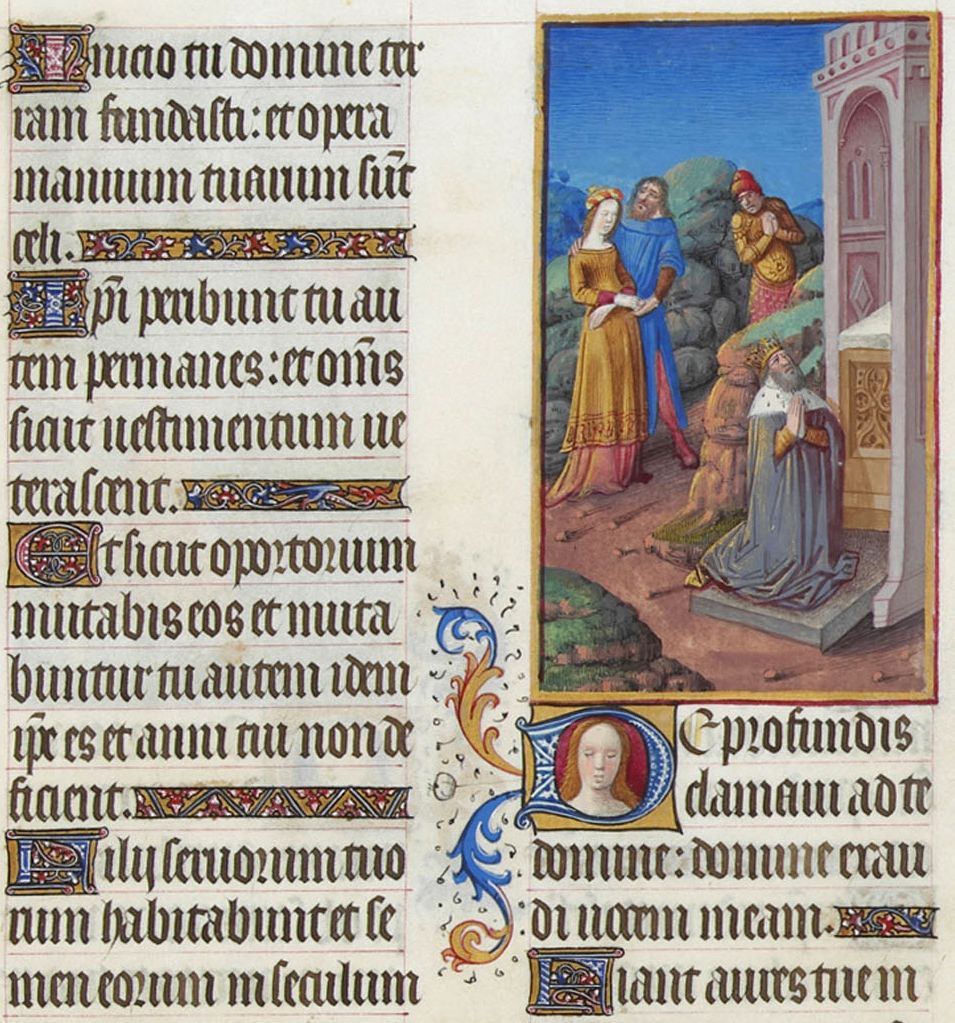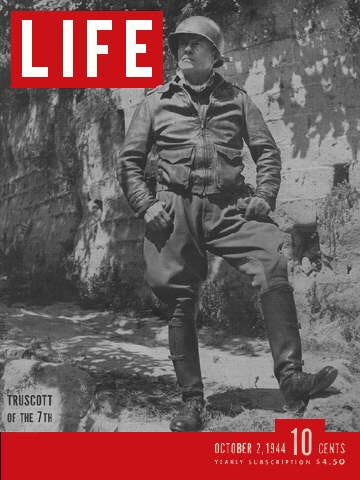Maybe if they stopped bombing us, we’d stop bombing them…If they have a million displaced persons, we have 150,000 families looking for places to stay because of the rockets.
Terror & Humanism
The Day After (Who Rules Gaza If Israel “Wins”?)
“We can’t have a reversion to the status quo with Hamas running Gaza,” Blinken…told the Senate Appropriations Committee. “We also can’t have — and the Israelis start with this proposition themselves — Israel running or controlling Gaza.”
The following piece, published last week in Foreign Affairs magazine, speaks to the future of Gaza. Its author once served as the prime minister of the Palestinian Authority and as finance minister. Before his dismissal by the P.A.’s President Abbas in 2013, Salam Fayyad was known for being a modernizer committed to reforming the political economy and security structures of the West Bank.
Come and See*
From Thomas Hardy’s “Departure”
“How long…
Must your wrath reasonings trade on lives like these,
That are as puppets in a playing hand?–
When shall the saner softer polities
Whereof we dream, have sway in each proud land
And patriotism, grown Godlike, scorn to stand
Bondslave to realms, but circle earth and seas?”
***
***
Hatikvah
Yuval Noah Harari has been on tv and the web often since Oct. 7th. He sometimes seems too smooth for this moment. (He’s come across as glib to more than one sharp observer.) Yet and still, I hope he’s a voice for the “saner softer polities” that Hardy once invoked way way back at the beginning of the 20th C. Harari has allowed in his brief talk below that most Israelis and Palestinians are too immersed in their own pain right now to care about the suffering of anyone outside their own tribes, but “outsiders” have no excuses: “Don’t be intellectually lazy. Don’t be emotionally lazy. Don’t just see part of this terrible reality…Keep a space for future peace, because we can’t keep that space now…”
Here’s Harari’s recent essay in The Guardian.
Failing Upward (Two Poems)
Trying To Think About Anything Other Than Israel
Like my dessert of pomegranate seeds.
That’s dessert, not desert, and the seeds are
a bright purple-red, not at all
the same shade as blood. What my cousin
told me they did to the pregnant woman
is poking at the outside of awareness.
Around Midnight (A Day After Mass Terror)
Maybe the most crucial news is that there’s no reason to be confident that we know much about what’s happening.
In Country
There are three new buildings being raised right around our co-op, primarily by workers who come in every day from the West Bank or Gaza. A few days ago I spoke to one of them in the little grocery store. Tall, shy, a teenager, he could speak only Arabic and comes over the border every day. From Gaza, he comes through the Erez crossing.
But I won’t be seeing him for a while. The crossing was destroyed yesterday when hundreds of nearby residents were slaughtered in their shelters.
The demonstrations were cancelled last night – most of the pilots, the soldiers, the navy, the doctors – were in the sites of the catastrophe, trying to clean up the remains of the slaughter, to treat survivors, to find some of the terrorists who may still be around.
Crystallize It

A mind so fine no idea could violate it? Midway through Tori et Lokita – the Dardenne Brother’s latest film – there’s a sequence that brings home the flaw in T.S. Eliot’s noble praise-line. The Dardennes crystallize an idea that’s suffused with feeling. What happens on screen isn’t a reduction or an abstraction or a violation. It’s an act of imagination.
A Pogrom Called Huwwara
Pogrom. That is the first word that came to mind when I heard about Huwwara. A rabid mob sowing violence, terror, fire and destruction, the terror magnified by the darkness, shops and houses and cars torched, with hundreds of injuries and – apparently by some miracle – just one death, of a man, Sameh Aqtash, who had just returned from volunteering help to victims of the earthquake in Turkey.
Horror and shame welled up close behind. This was a pogrom, but with the critical characters reversed. No longer were Jews the victims, in the classic, almost stereotypical role fixed by history and historiography for twenty-five centuries or more. Now Jews were “masters in their house”, as asserted by a minister in the new Israeli government, and determined to show it.[1]
HUWWARA
David J. Wasserstein is professor of History and Jewish Studies at Vanderbilt University. Before coming to Vanderbilt he served as professor of Islamic history at Tel Aviv University. He’s provided the following short introduction to his poem which he’s translated from Hebrew into English.
After the pogrom in Huwwara, on 26-27 February, I was like many Jews and Israelis in shock. That shock eventually, a couple of days later, took shape in the text below. It is a cento, a work composed largely of quotations from other texts.
Song of Ascension

Dear friends and family,
We found the five of them under a Mango tree last night, to which we had been led by bandits after a release deal was cut by their families.
We were the “guarantors” that the ransom given by their families would achieve their freedom. (This is, in fact, almost never the case, until multiple ransoms are paid.)
It was a dark 10pm, made up of many kinds of darkness.
The Student
At first the weather was fine and still. The thrushes were calling, and in the swamps close by something alive droned pitifully with a sound like blowing into an empty bottle. A snipe flew by, and the shot aimed at it rang out with a gay, resounding note in the spring air. But when it began to get dark in the forest a cold, penetrating wind blew inappropriately from the east, and everything sank into silence. Needles of ice stretched across the pools, and it felt cheerless, remote, and lonely in the forest. There was a whiff of winter.
Ivan Velikopolsky, the son of a sacristan, and a student of the clerical academy, returning home from shooting, kept walking on the path by the water-logged meadows. His fingers were numb and his face was burning with the wind. It seemed to him that the cold that had suddenly come on had destroyed the order and harmony of things, that nature itself felt ill at ease, and that was why the evening darkness was falling more rapidly than usual. All around it was deserted and peculiarly gloomy. The only light was one gleaming in the widows’ gardens near the river; the village, over three miles away, and everything in the distance all round was plunged in the cold evening mist. The student remembered that, as he had left the house, his mother was sitting barefoot on the floor in the entryway, cleaning the samovar, while his father lay on the stove coughing; as it was Good Friday nothing had been cooked, and the student was terribly hungry. And now, shrinking from the cold, he thought that just such a wind had blown in the days of Rurik and in the time of Ivan the Terrible and Peter, and in their time there had been just the same desperate poverty and hunger, the same thatched roofs with holes in them, ignorance, misery, the same desolation around, the same darkness, the same feeling of oppression — all these had existed, did exist, and would exist, and the lapse of a thousand years would make life no better. And he did not want to go home.
Creative Marginalia
From Simon Ley’s “Marginalia,” an essay included in his posthumous collection, The hall of uselessness (2013)...
Chekhov wrote some 250 stories — among all of them he singled out “The Student” as his favorite.
Bread and Freedom
This talk was included in the collection, Resistance, Rebellion and Death (1961), published after Camus’s death. It originally appeared (per the Anarchist Library) as “Restaurer la valeur de la liberté” (“Restoring the value of freedom”) in the September 1953 issue of La Révolution Prolétarienne, a French syndicalist journal. The title was changed when it was reprinted later the same year. “Bread and Freedom,” incidentally, was also the title of the Russian translation of Kropotkin’s The Conquest of Bread.
On this and every Memorial Day, my family and I remember Grandpa

This is the way CNN commemorated Memorial Day in 2015, with a story they called, “The General Who Apologized to the Dead Soldiers on Memorial Day.”
“At the Sicily-Rome American Cemetery at Nettuno, Italy, Memorial Day 1945 was an elegiac occasion. Lt. Gen. Lucian Truscott Jr., who had led the U. S. Sixth Corps through some of the heaviest fighting in Italy and now commanded the Fifth Army, gave a speech that is particularly relevant for today when the trauma of our long wars in Iraq and Afghanistan continues to haunt so many vets.
“Come and See” (with English Subtitles)
CLICK ON LINK BELOW FOR FULL MOVIE FREE ON YOUTUBE WITH ENGLISH SUBTITLES (TRAILER BELOW THE LINK)
Come and See | WAR FILM | FULL MOVIE – YouTube
On Richard Wolin’s “Heidegger in Ruins”
This short sprint to the starting gate of a review of Richard Wolin’s solid “Anti-Heidegger,” his recent polemical book Heidegger in Ruins (Yale University Press, 2023).
Fifty years ago, Walter Kaufmann had already reduced Being and Time to bare life, noting how abusive Heidegger’s German was; how evident but unremarked the bleak mood during and after Germany’s World War I defeat, reappearing as Heidegger’s mood of “anxiety” (think: trench warfare) and as a requirement for authenticity; how close to plagiarism were Heidegger’s views on being-toward-death, considering Tolstoy’s The Death of Ivan Ilyich.
Kaufmann is droll and incisive on the academic resistance to criticism of Heidegger even in Heidegger’s own time. After declaring that classical scholars found Heidegger’s reading of a fragment of Anaximander to be untenable; that Heidegger’s interpretation of Kant “was widely repudiated by Kant scholars”; and that professors of literature considered Heidegger’s readings of Hölderlin, Rilke, and Trakl, among others, way stations to the destruction of German literature, Kaufmann concludes: “Even so (emphasis added, SC; read closely!), some who know their Kant are awed by the erudition of Heidegger’s classical interpretations; Nietzsche scholars find his Rilke essay stimulating and profound; and Rilke scholars bow before his Nietzsche exegesis.”[i]
The War Poets
It has been a year, a year of bombs and voices. These people speak through translators, these people speak their lives translated through war. This is the collective landscape, wrapped in the mist and myth of the moment, told in the fractured piecemeal that is war.
INTRODUCTION TO THE METHOD
What happened
We were going to gather snow
From the tops of the mountains
In summer
That’s what he said he wanted
From there we would carry it back
On the backs of our “swans”
To the city
To sprinkle it onto the roiling streets
And citizens squinting up joyfully, gratefully
This we would do not for personal glory
But purely for that of the city
Eternal glory to the nest where we were born